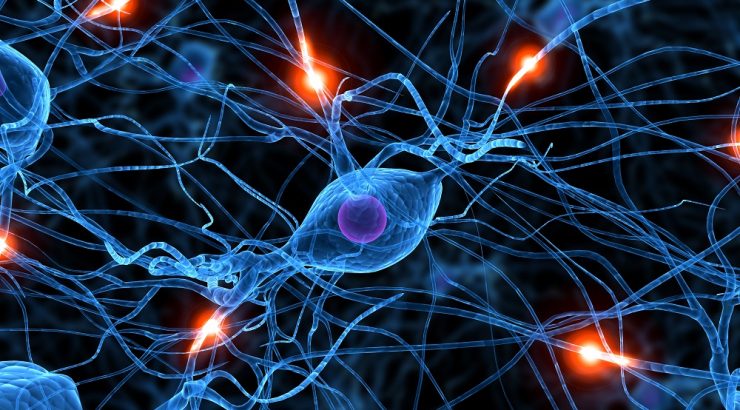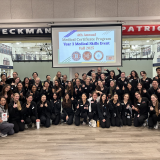
Investigating the Neural Mechanisms of Social Cognition Communication, Engineering, and Brain science come together for an exciting new pilot study
August 6, 2019
Mental health is associated with social cognitive development. Autistic children, whose cognitive development is oftentimes impaired, are at risk for social isolation, bullying, depression, and anxiety, all risk factors for suicide. In fact, suicide is 28 times more likely in children with autism than the general population.
An interdisciplinary team of faculty, Deanna Hughes Assistant Professor Communication Sciences and Disorders, Aaron Schurger Assistant Professor Psychology and Brain Institute Member, and LouAnne Boyd Assistant Professor Fowler School of Engineering, and two undergraduate students Cristina Uribe (psychology) and Chandler Siemonsma (health sciences) will spend the next year determining if a predictable relationship exists between the ability to perceive abstract representations (“gist”) and social cognitive ability.
They will also seek to determine if there is a spectrum of perceptual and cognitive ability and if they covary. Finally, they will explore the connection between brainwave activity and social cognition to better understand the neural mechanisms that contribute to social cognition. This basic science research will be an important step in understanding neural mechanisms that contribute to social cognition and may one day lead to diagnostic testing indicating if a child is at high risk for suicide.
We were able to get in touch with Chandler Siemonsma. He had this to say about the project:
“As an aspiring physician with a passion for neuroscience, I was thrilled to learn of this new and exciting research being conducted at Chapman. With a year of research in animal behavior under my belt, I knew this project was perfect for me to continue my endeavors in the field of neuroscience and behavior. I am looking forward to working with the awesome research team that has a tremendous amount of expertise. I know, without doubt, I will learn so much and can’t wait to get started.”




